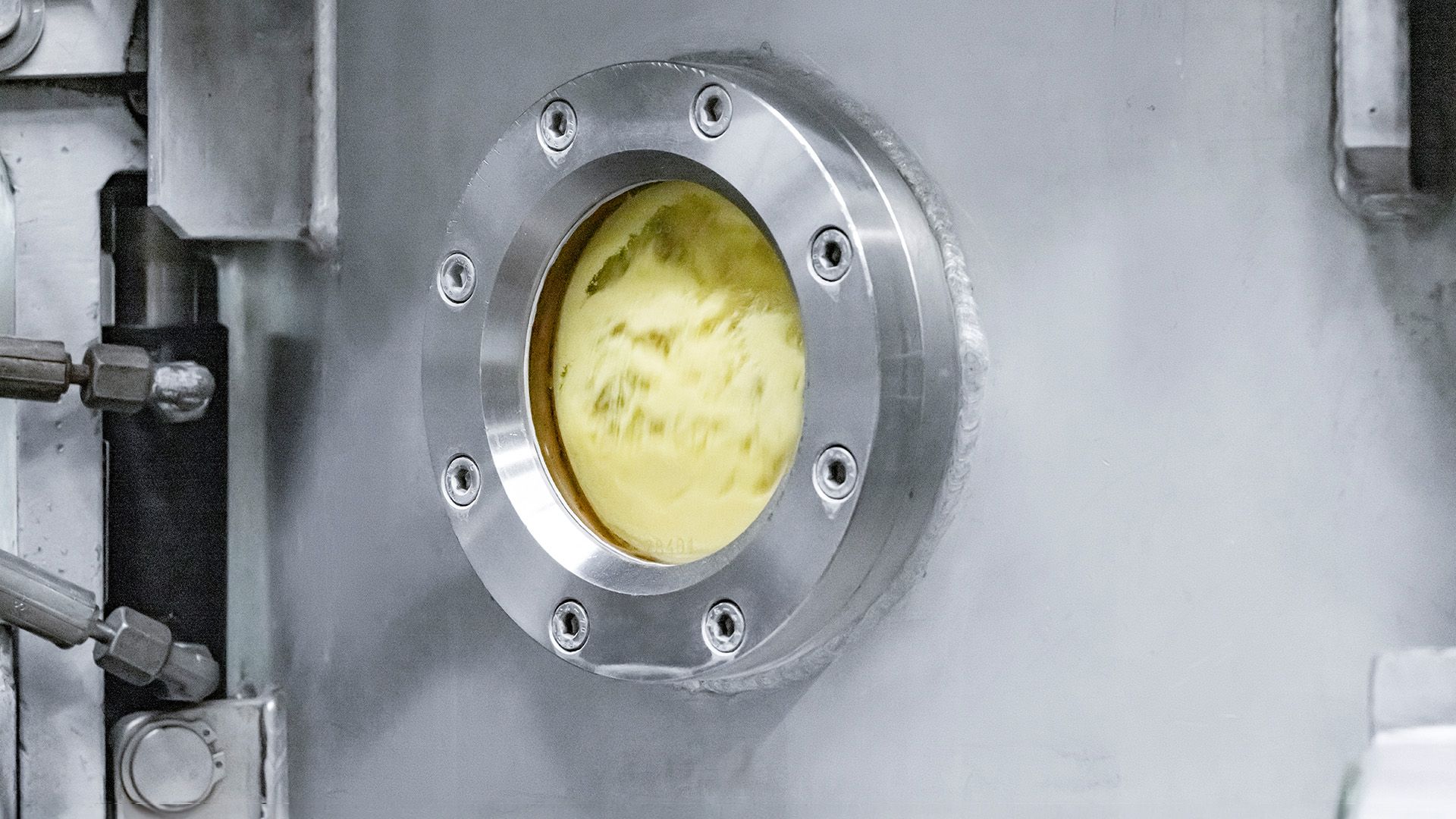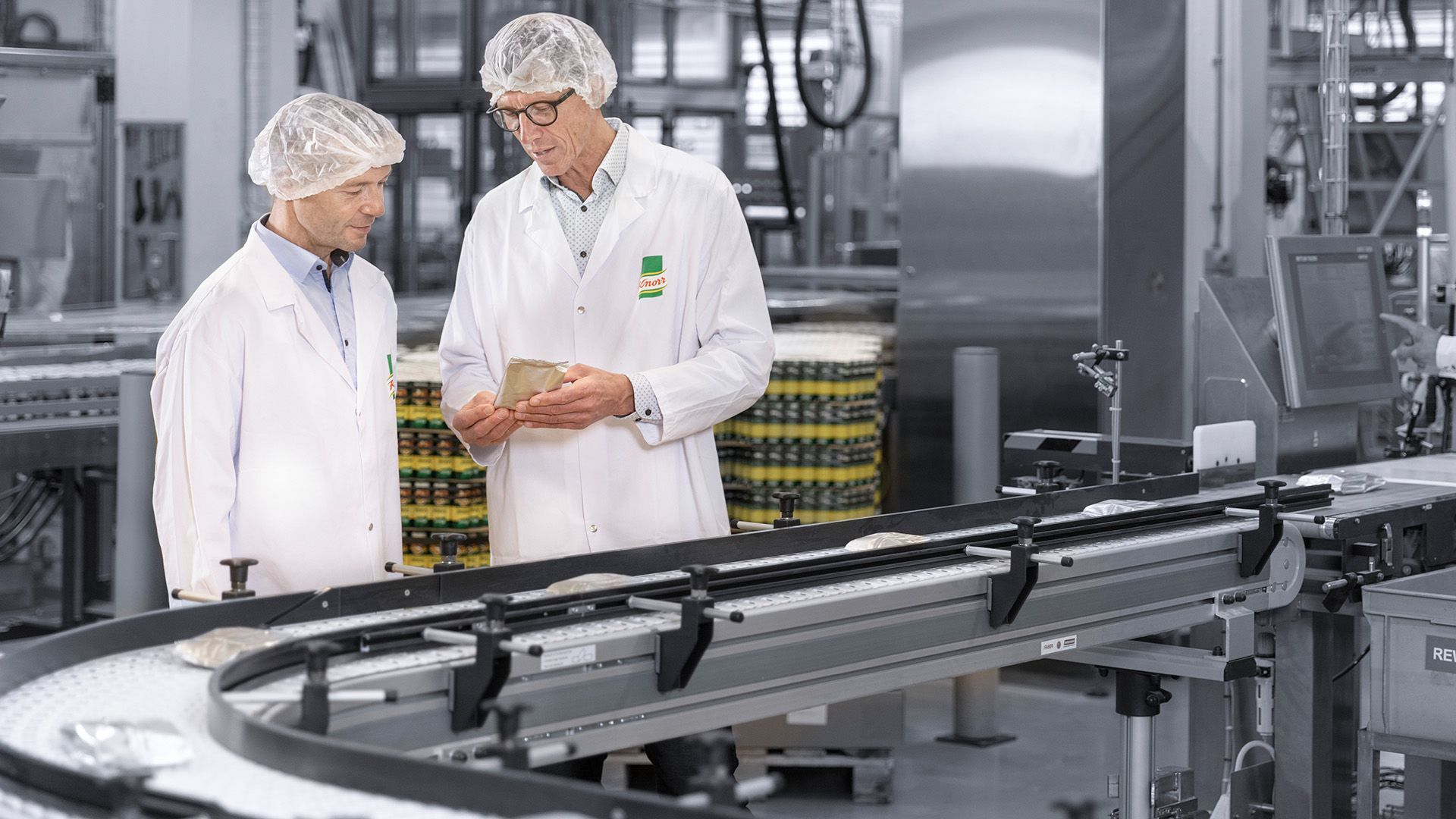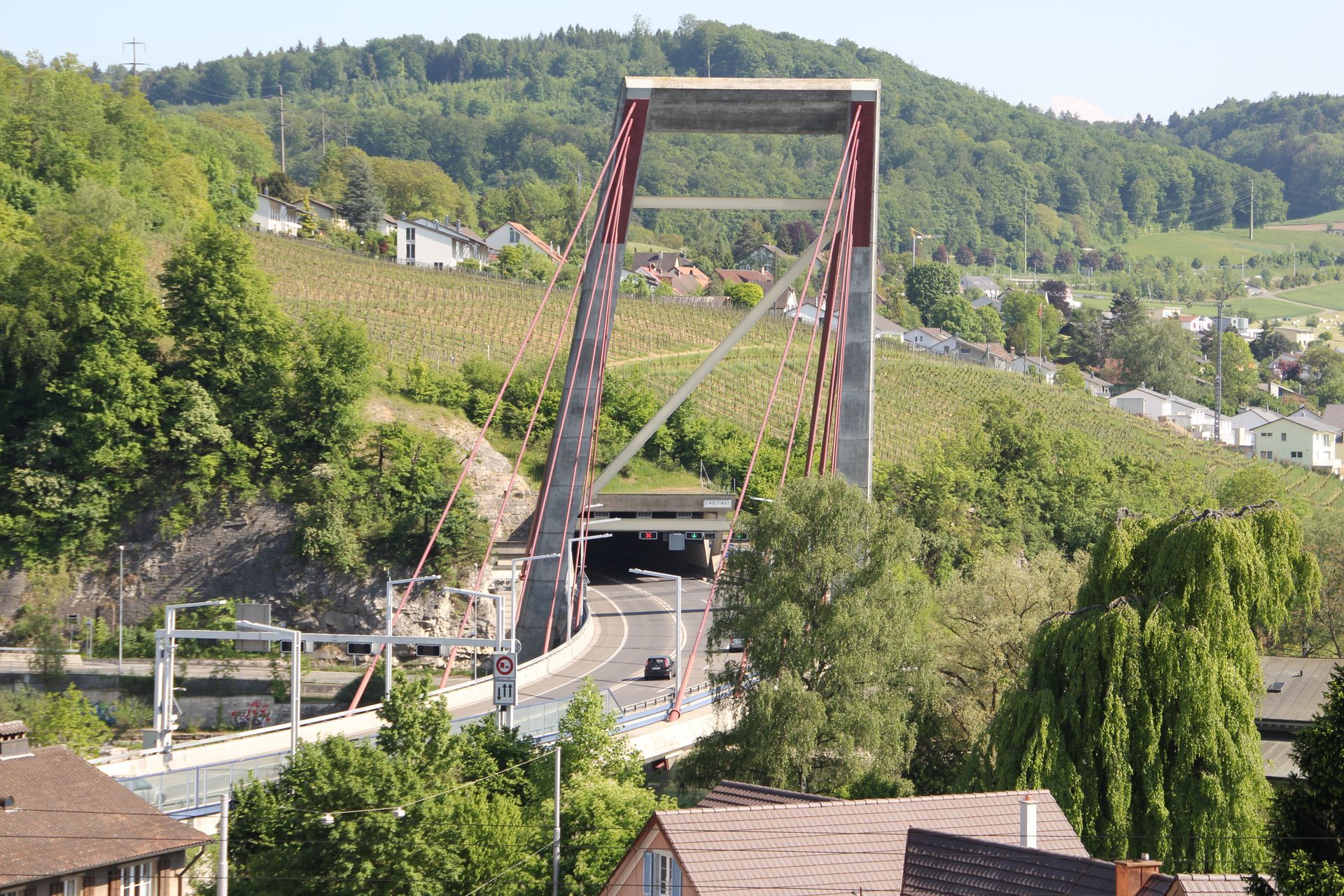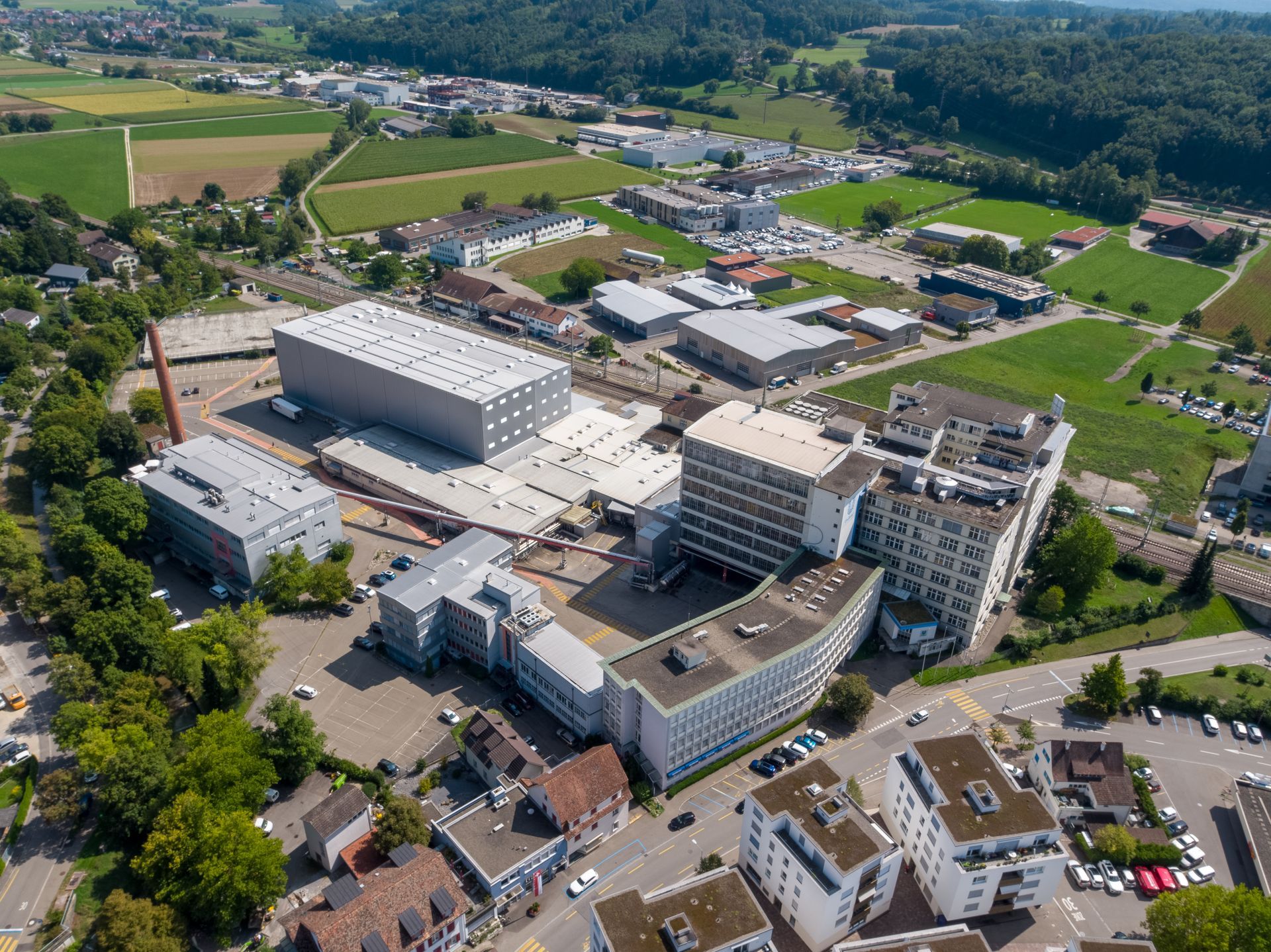We can no longer eat the way we used to – our traditional food culture is too resource-intensive. Our food system must change. The Schaffhausen food specialists Unilever and Pronatec are taking an active roll in this new orientation. Though they approach the problem from different angles, they share a common denominator: Creating the best product for consumers.
"The food system is out of kilter," explains Bernhard Schober, Head of Unilever Switzerland, as the interview begins. Around a quarter of the world's greenhouse gas emissions come from food production. Water consumption by cultivation and processing is often very high, and a third of food ends up as food waste. At the same time, part of the world's population suffers from malnutrition, while obesity contributes to rising health costs elsewhere. To add to these challenges, climate changes are affecting harvests, and these affects will only increase.
Food producers, including Unilever and Pronatec are now aware that they have a responsibility to develop a healthy food system and want to play an active role in improving our situation. Some solutions include sustainable supply chains, organic production, plant-based products, and foods containing less sugar or salt and more fiber. “Every company must find a way to make the challenges of production, processing and consumption more sustainable. Unilever has made an official commitment to sustainability,” concludes Schober.
At their production site in Thayngen, Unilever is on their way. And Schaffhausen cocoa processor Pronatec has also committed to sustainability. For over 45 years, Pronatec has focused on organic and fair trade products; since 2022, with their own production facility in Beringen.
Unilever Thayngen: “Local for Local” and the “Swiss Nutrition Manufacturing Hub.”
“As a food producer, we have a responsibility to our customers and to our environment. Of this we are aware. And this responsibility flows into our development in Thayngen,” says Bernard Schober. Since March of 2023, Schober has served as business manager of Unilever Switzerland, overseeing about 300 employees in the business center in Schaffhausen and the manufacturing plant in Thayngen. The former “Knorri” plant is, as before, the heart of Unilever Switzerland. Here, the first packaged soup was invented, bouillons and packaged mashed potatoes (“Stocki”) produced, and most importantly, the beloved Aromat.
Ten years ago, production at the manufacturing plant was oriented to the European and Swiss markets. “We’ve adapted this strategy in recent years,” explains Daniel Lötscher, who has served as production manager in Thayngen for the past four years. “Today, our production is local and geared toward the Swiss market. Lötscher is convinced that Unilever has thus also set its course for the future.”
Sustainability Strategy
“With our production in Thayngen, we want to achieve comprehensive sustainability,” explains Bernhard Schober. “We want to be sustainable economically, socially, and environmentally.” This endeavor has directed the new positioning of Thayngen. “Only when we achieve that can we ensure that we can produce Aromat, Stocki, and soups in Thayngen in the future.” With the local-for-local concept, Unilever has followed a strategy that will strengthen the location for the long term.
For Unilever, local –for local means produced in Switzerland, with as many Swiss resources as possible, and products that are specifically designed for the Swiss market. This includes the Swiss flag on the packaging. “This “Swissness” means that 80 percent of our ingredients come from Switzerland. And of course, they must meet our standards for quality,” adds Daniel Lötscher. To achieve this, Unilever maintains contacts extending all the way to western Switzerland, where potatoes for Stocki are cultivated. Over the course of its history, Knorri consistently brought new innovations with its products to market. “We’ve done our work with expertise, passion, and pioneering spirit,” Bernhard Schober explains. “Our goal is to share that our products not only taste good but are also diverse and healthy.”
With the local for local approach, Unilever connects both regular exchanges with local authorities and close contact with the Economic Promotion department of the Canton of Schaffhausen. “Whenever possible we consider local suppliers for contracts. Our volume of investment carries considerable weight,” explains Daniel Lötscher. Their commitment to the region also involves the education and training of new professionals. “25 percent of our staff at the Schaffhausen and Thayngen locations are under the age of 25. For us, this is an investment in the future and in sustainability,” says Bernhard Schober. Schober und Lötscher underline their connection to the region in an additional way: they live with their families in the region and appreciate the advantages of living close to their work, with a high quality of life.
The "local for local" strategy is part of ensuring that production remains in Thayngen, but it must also be financially sustainable for Unilever. Bernhard Schober concludes: "The ideological component alone is not enough. We have to achieve the same economic key figures with our plant as other sites. But all the indications are that we will achieve this."
From local to the future: The Swiss Nutrition Manufacturing Hub
Parallel to the local for local approach, Schober and Lötscher are focusing on an another strategy, with the aim of developing a second strong pillar for the Thayngen location. “Our goal is to develop a Swiss Nutrition Manufacturing Hub in Thayngen. On our production site, we offer space for companies who are engaging with new food trends and emerging eating habits,” explains Daniel Lötscher.
Unliever Thayngen envisions multiple advantages of such a Hub: first, know-how is pooled and a network is created among companies with the same focus, and second, companies can forego larger infrastructure investments and instead benefit from the capacities freed up at Unilever. The facility in Thayngen offers space for scaling projects as well as a production infrastructure with filling systems, steam, wastewater disposal and so on. "Over the past two years, we have been working with the economic development agency to position and align the Swiss Nutrition Manufacturing Hub," adds Daniel Lötscher. “Our aim at the Nutrition Hub is to address the challenges facing the food industry. Together with startups and new companies, we want to test solutions, scale them up, and learn.”
The new Nutrition Hub is attracting interest. Firms from start-ups to established producers are already in contact. Lötscher expects the first company to settle here as early as next year. The offer itself is interesting and unique. Where else does an experienced producer open the doors to its expertise to new producers – potential competitors –to positively influence the future of the food industry? A hub with an application-oriented ecosystem can be created in Thayngen, from which innovation and cooperation can grow. A Swiss Nutrition Manufacturing Hub would present an opportunity for the entire region, for the Swiss food industry, and above all, for Swiss consumers.








